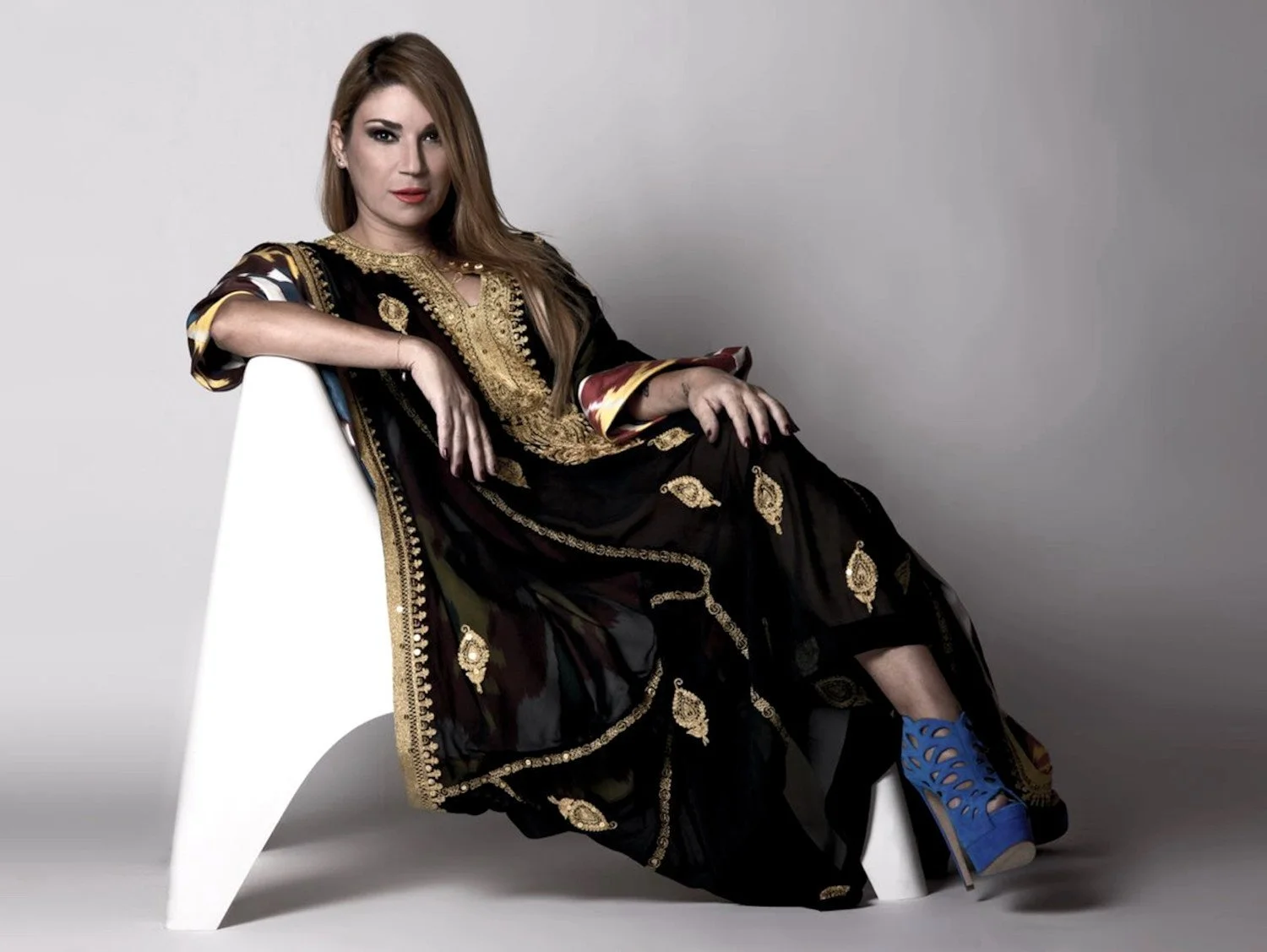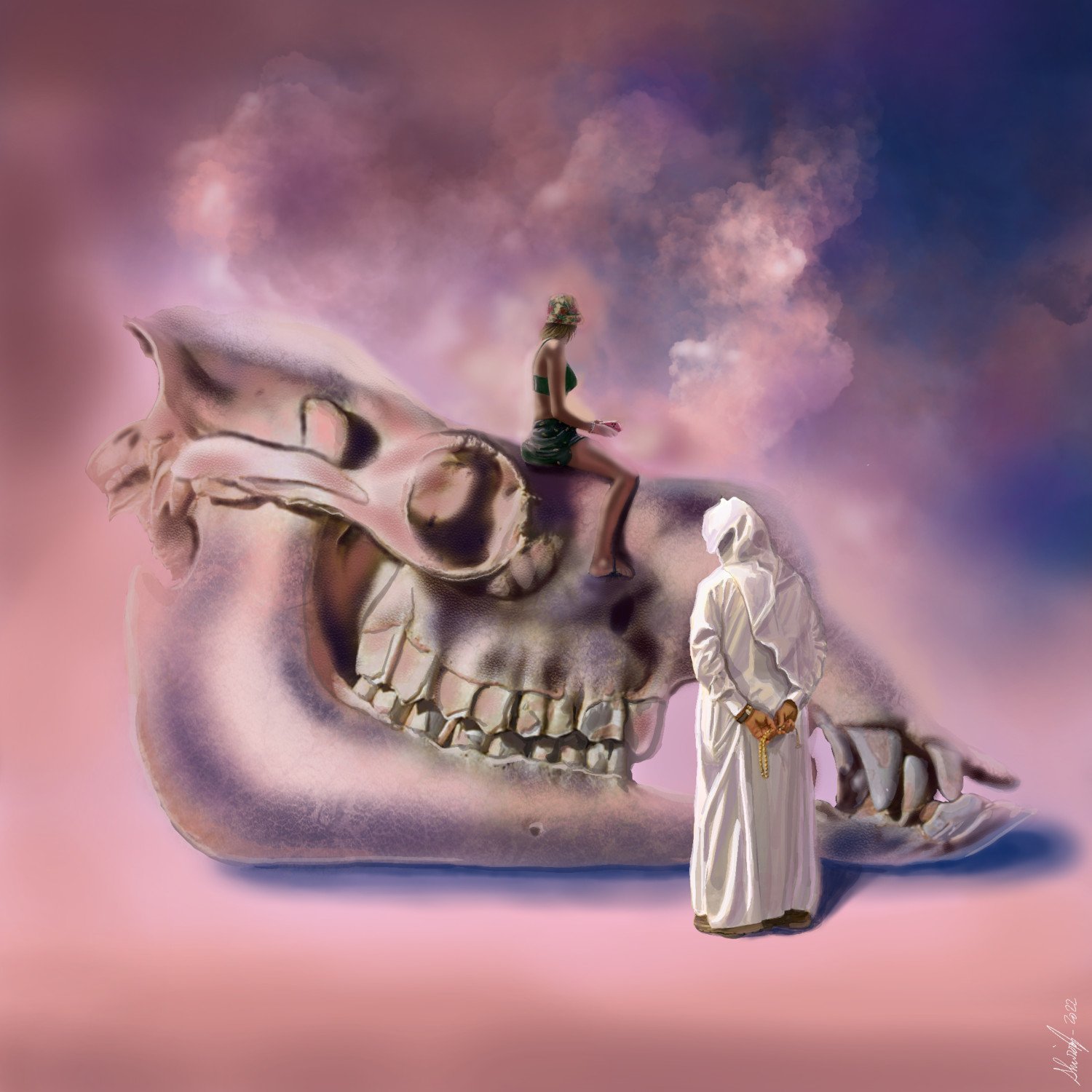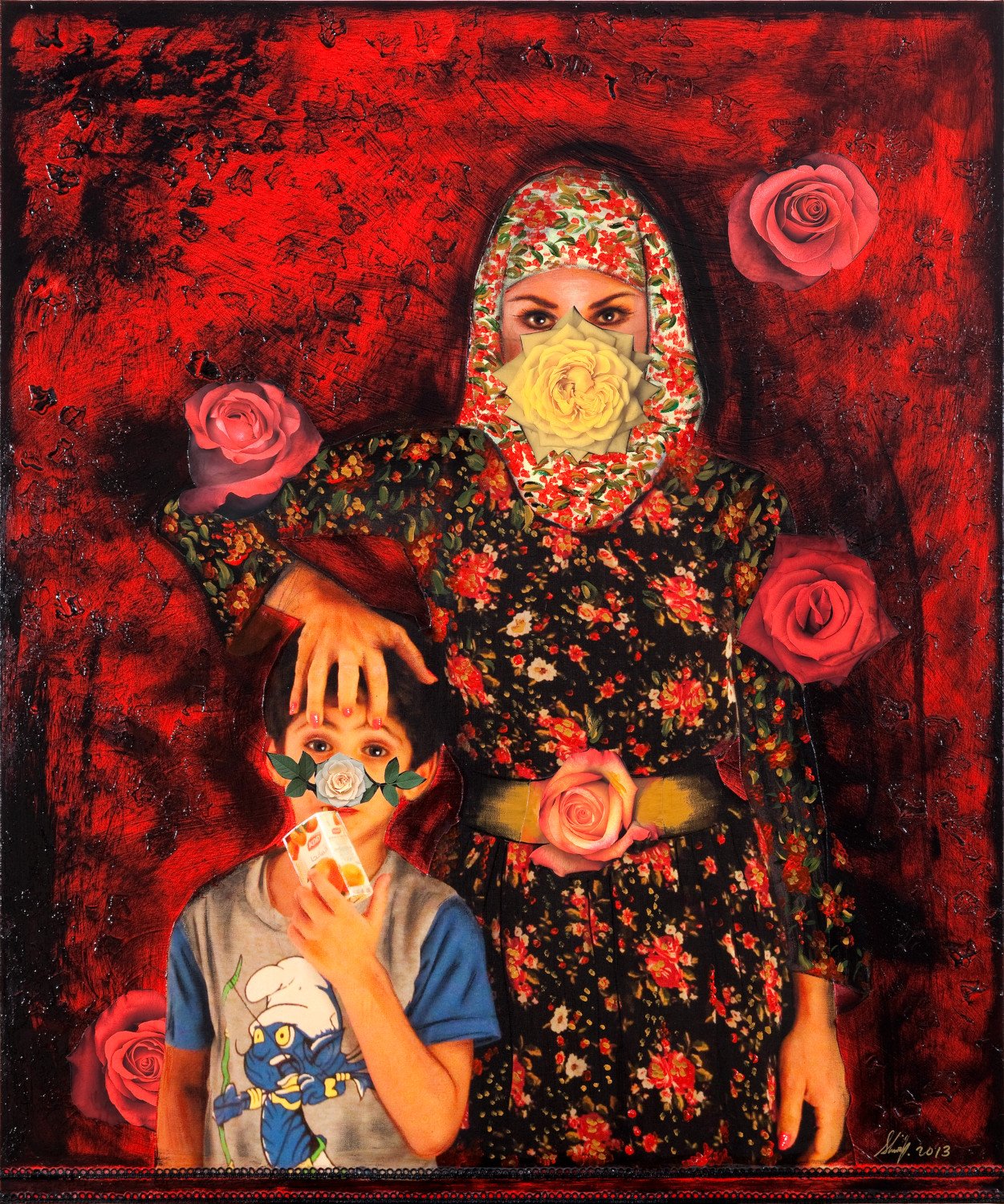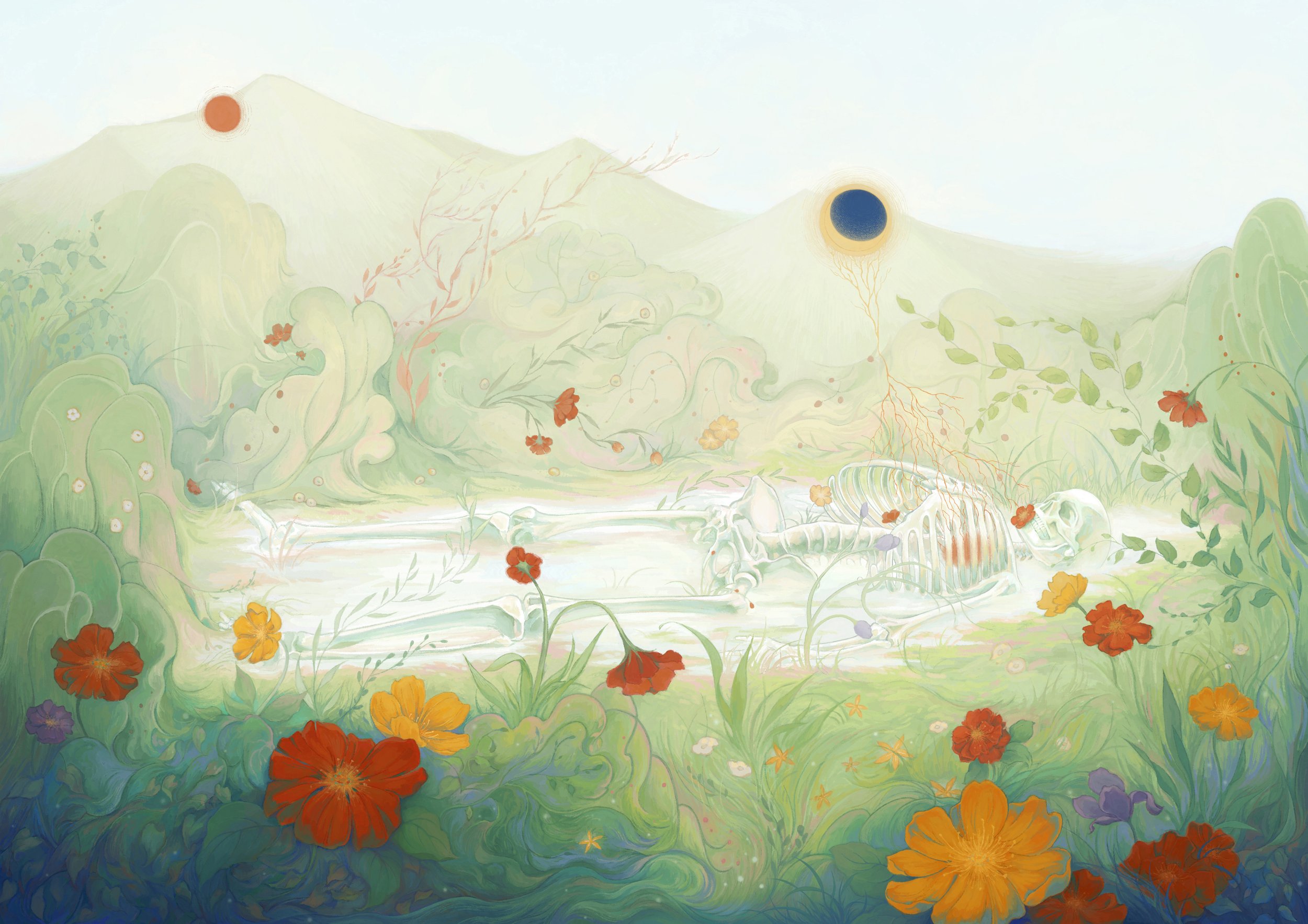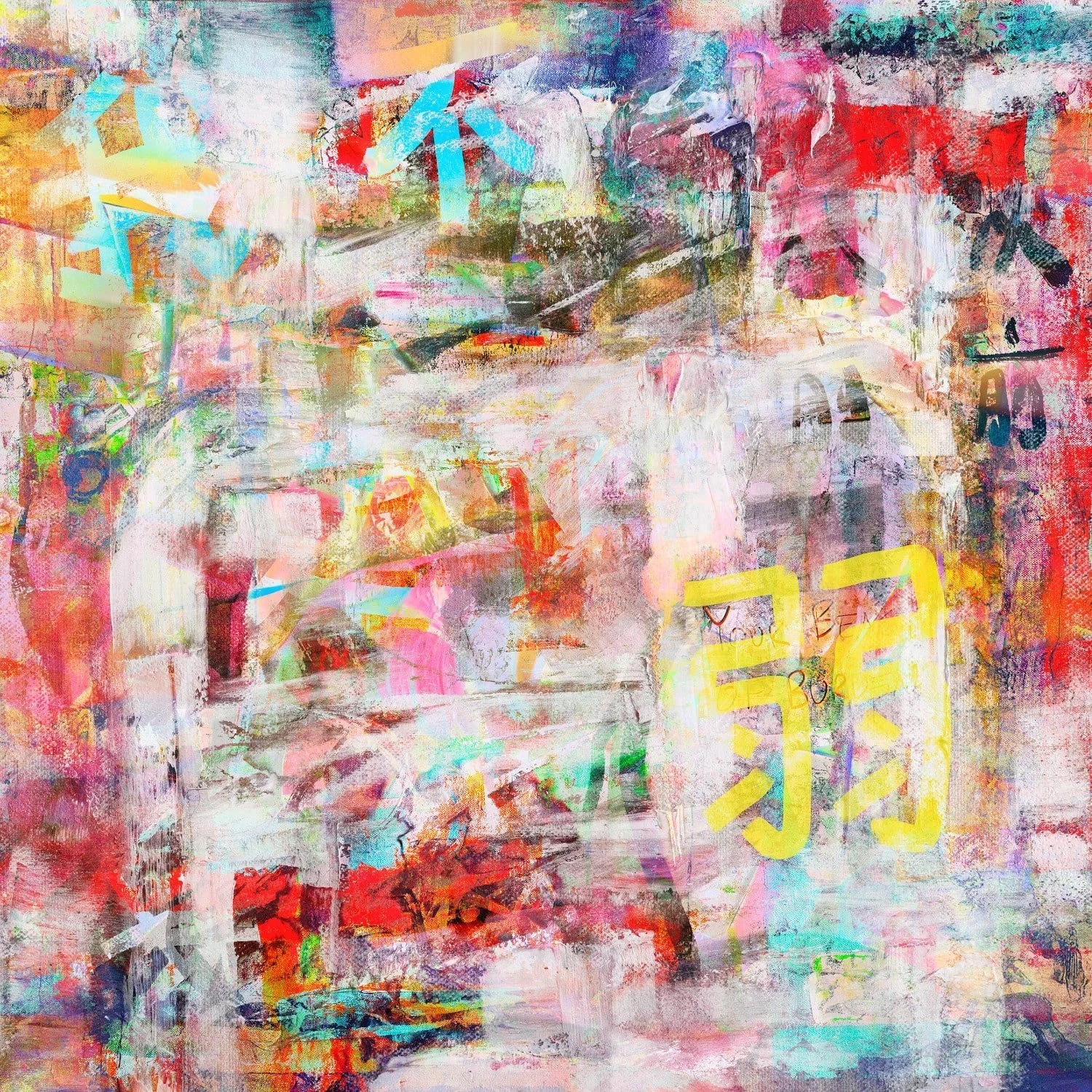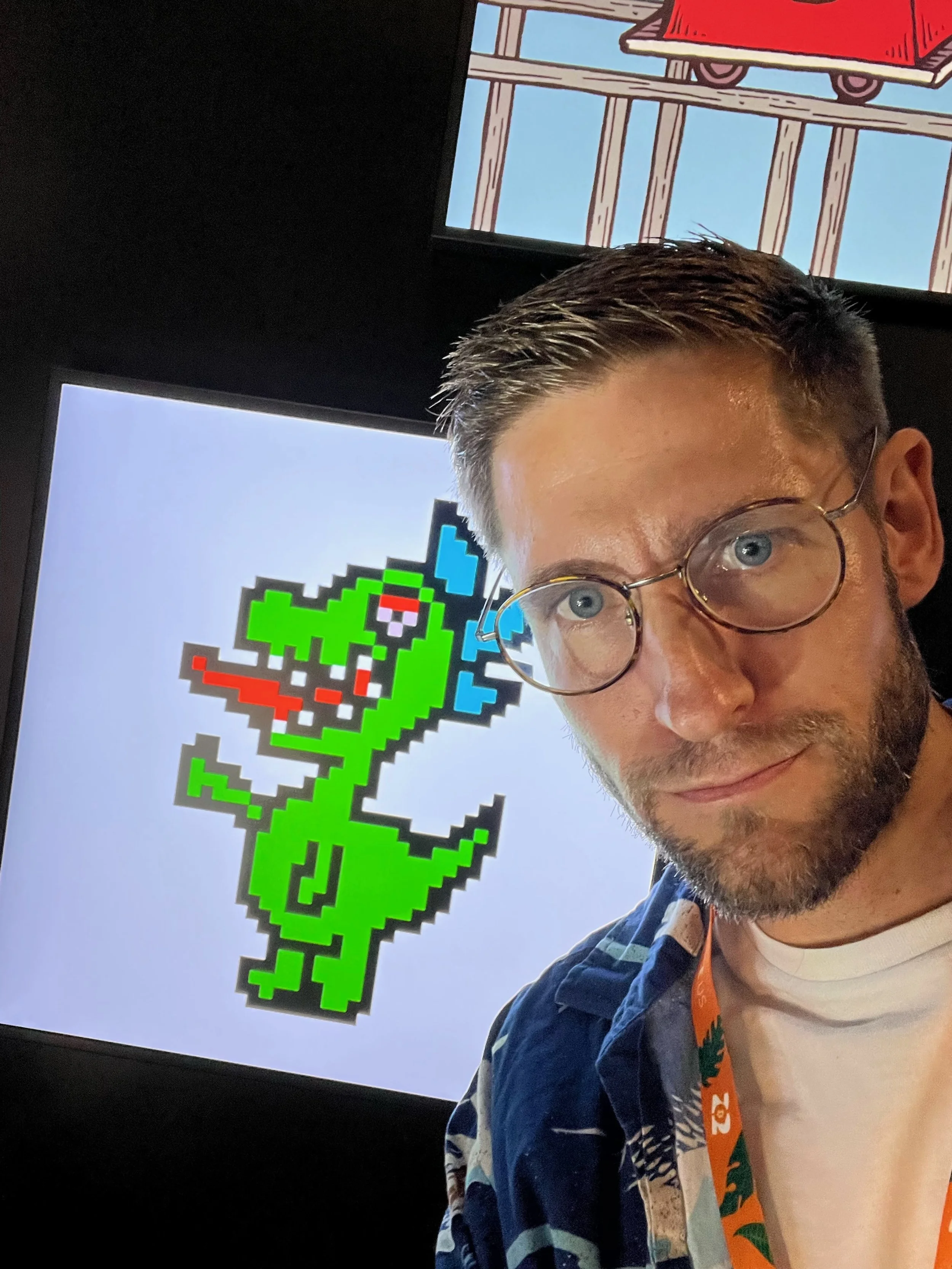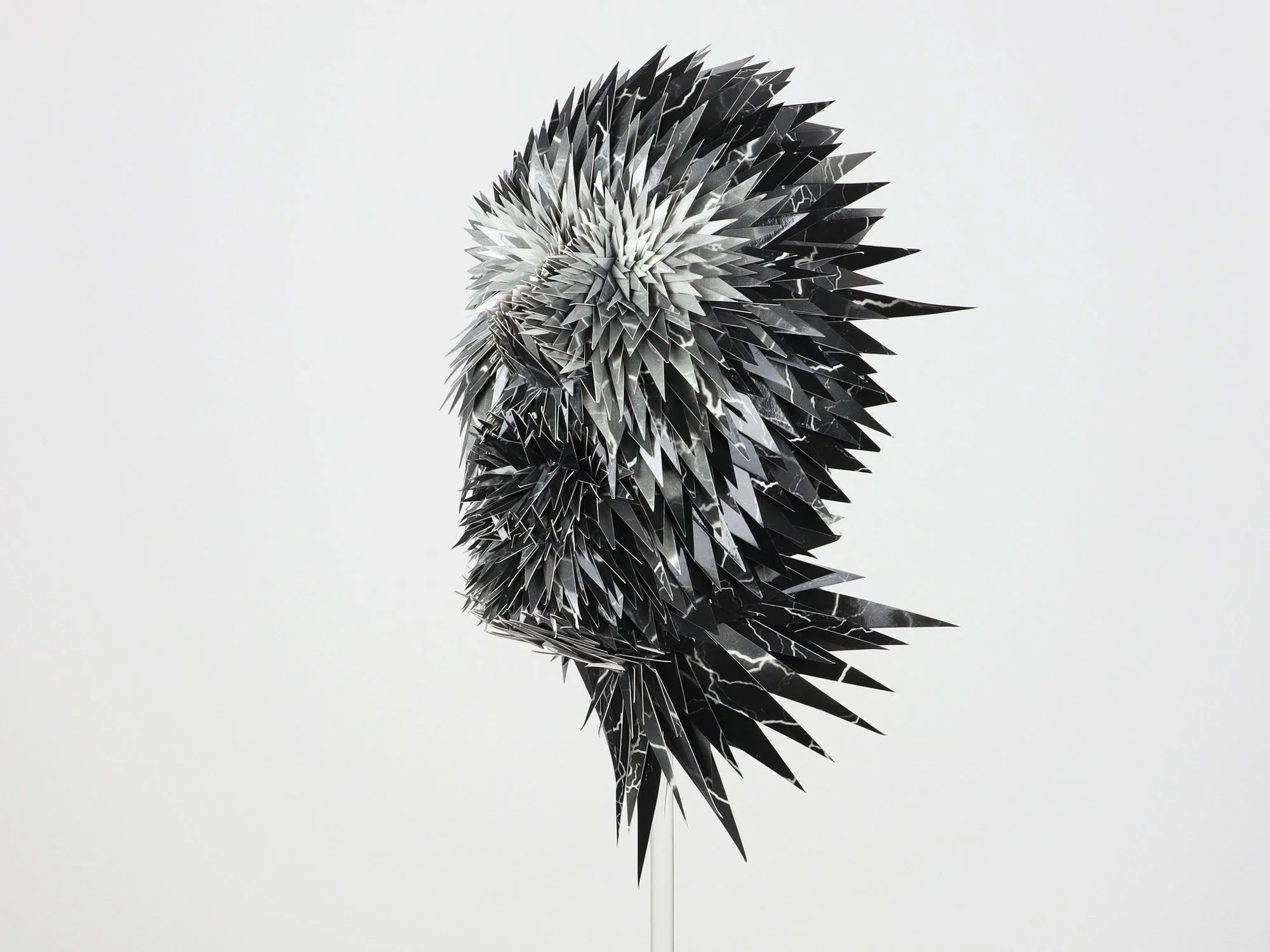10 Questions with Shurooq Amin
Shurooq Amin is a mixed-media interdisciplinary Kuwait artist and an Anglophone poet who aims to instigate positive change in society. She has a Ph.D. in Ekphrasis, the relationship between art and poetry, and has been published and anthologized internationally. She has been a guest speaker at various universities and a judge for various events, including panel examiner at various Viva Voces.
Amin is the first Kuwaiti woman interviewed by BBC's Stephen Sackur on HARD Talk (November 17, 2014). She has appeared on a live panel discussion on BBC's Democracy Day (January 20 2015), as well as on various other BBC news TV and radio shows.
She has had 15 solo exhibitions, more than 45 group exhibitions, her paintings have been sold at auctions, commissioned privately and publicly, awarded prizes locally and internationally, and shown at biennales and art fairs. A retrospective of her work was featured in the biannual art journal Contemporary Practices: Visual Arts from the Middle East.
Shurooq Amin - Portrait
Amin's poetry has been published in two books to date, in more than 40 literary journals across the globe. It has been anthologized in the Gathering the Tide: An Anthology of Arabian Gulf Poetry by Ithaca Publishers in association with the Virginia Commonwealth University of Qatar as well as We Wrote In Symbols; Love and Lust by Arab Women Writers (Saqi books, UK). Her second volume of poetry "The Hanging of the Wind" is taught as part of the contemporary literature curriculum in universities in the Gulf.
She is the first Kuwaiti to be nominated for the prestigious Pushcart Prize in December 2007 in the USA. In 2012 she was nominated as one of Kuwait's 46 Inspirational People in Sheikha Intisar Al-Sabah's book The Alchemy of Wisdom, despite having her solo art exhibition It's a Man's World being shut down and censored by the Kuwait authorities. In April 2013, Amin was awarded the title of Artist of the Year by the Arab Woman Awards. She is the first Kuwaiti female artist to be auctioned at Christie's auction house. Amin exhibited her 2013 series Popcornographic during Art Dubai with Ayyam Gallery. Her 2014 series We'll Build This City on Art and Love was exhibited from September 14 to October 23, 2014, with Ayyam Gallery, DIFC, Dubai, and exhibited in London from November 12 2014 to January 10 2015, with an artist's talk and panel discussion. In October 2014, Amin was nominated for the 2014/2015 Sovereign Asian Art Prize by Art Radar. She was a moderator, panel speaker and poet at NYU Abu Dhabi's workshop FIND: Reversible (7-10 December 2014), alongside fellow speakers Manal Al-Dowayan and Sheikh Sultan Al-Qassemi.
Amin is the first Kuwaiti female artist to show her work at the Venice Biennale (56th International Venice Biennale, Italy, May to November 2015). She exhibited her 13th solo show in Kuwait, in April to May 2016, a collaboration between Ayyam Gallery, Dubai, and Contemporary Art Platform, Kuwait, and curated by the renowned Martina Corgnati from Italy. The show moved to Beirut in September 2016. In May 2016, she was invited to be one of the professors on the Ph.D. examining board at the University of Trento, Italy; and invited as a Speaker on art for change at the Academy of Fine Arts, Brera, Milan, and in the summer of 2016, she worked on a series of artworks entitled The Four Seasons of Love at her art residency at Villa Lena, Italy.
On October 5, 2016, Amin was listed as one of the top 50 GCC Women Leaders and had been the recipient of the Extraordinary Women In Leadership award by World Congress Brand, nominated for the Extraordinary Women's Awards by ECCO, Dubai, and a speaker at the Global Economic Forum: Women in Leadership in October 2016. In the summer of 2017, she completed an art residency at Art Omi International in New York, and in 2018, she appeared in The Women Within, a film by Bloomingdales focusing on celebrating the women behind the women, curated an art installation for the Arab Woman Awards and spoke at GUST University for their Visual Culture conference SEEN.
On January 8 2020, Shurooq Amin's 15th solo art exhibition - Like Russian Dolls We Nest In Previous Selves - opened up to critical acclaim at CAP Gallery in Kuwait. The exhibition lasted one week (as opposed to the scheduled six), before it was shut down and censored by the Ministry of Interior and Ministry of Information on the false premises that the artwork was "pornographic", and has since been a speaker on censorship in the arts and the repression of voice for women, speaking at the Bahrain Rotary Club, Jordan Rotary Club, and the Berlin Freemuse Conference on Artistic Freedom.
This second-time censorship has fueled Amin to further expose hypocrisy in the Muslim world. And as such, in early 2021, Amin turned to the world of NFTs (Non-Fungible Tokens) as a platform for freedom of expression, using NFT art as a utility for freedom, getting her message across universally without fear of oppression or censorship. She became the first Kuwaiti artist to mint, list, and sell her artworks as NFTs. She is currently organizing and curating Kuwait's First IRL NFT Exhibition, entitled WAGMI. She also became the first NFT artist to establish a Twitter Space for the Middle Eastern & North African community, bringing the community together and supporting other artists and creators in the space. She has been onboarded to several NFT platforms, collaborated with several projects (including Keevo crypto wallets), and has exhibited at 3 different galleries at NFT NYC: Women of the World with Nowhere Gallery X Infinite Objects, Sabet X Spatial for Stratosphere, and Soho Technique X We Dream Auction House & Gallery Crawl.
Since 2021, Amin has been interviewed and featured numerously as one of the pioneering Arab women in the NFT space, on platforms like YouTube (CryptoTalks with Rudy Shoushany), Arab Web3 news platforms like Cryptonaat & About Her, podcasts like Women Power Podcast (Bahrain) for empowering Arab women (Episode 124: Championing Fearlessness in Art & NFTS with Shurooq Amin), as well as Arab news channels like Annahar News channel, NuqtaDoc from Saudi Arabia, The National News (UAE), and Kuwait Times & Kuwait News (Kuwait), as well as Middle Eastern magazines like SEKKA, not to mention international news channels and magazines (eg: Brytehall Editorial).
Amin continues to push the boundaries of what it means to be an Arab Muslim woman and mother to four children, to break stereotypes of what society deems appropriate for a woman in her 50's, to live outside of the socio-political box that she was born and bred in, and to tackle taboo topics via her traditional and digital art (NFTs).
ARTIST STATEMENT
Shurooq Amin lives in a region rampant with war and instability, where people are raised on hypocrisy and double standards; yet also wealth, luxury, entrepreneurship, warmth, and hospitality. As an artist, her work reflects that socio-political dichotomy, albeit sarcastically, by holding up a mirror to society, loud and unequivocally clear, drawing people in and allowing them to open a dialogue. In 2012, when Kuwait authorities shut down her show “It’s a Man’s World”, they wanted to censor her as a woman and female artist. But she came back bolder than ever, and when the authorities shut down her 15th solo art exhibition again in January 2020 on the false premises that her work “encourages immorality”, she retorted with a collection of NFTs that any Web2 entity can’t censor. She intends to affect social reform, instigate positive change, and break stereotypes of what it means to be a woman, artist, and mother. And she is doing it all from the remoteness of her home in Kuwait, where she lives alone with her four children, utilizing art via NFTs as a peaceful non-censorable weapon for freedom and autonomy.
Girl With A Pearl Past, Digital Painting, 2022 © Shurooq Amin
Get your limited edition copy now
INTERVIEW
You have an extremely rich career and exciting story, with many fights and important lessons to share. How would you describe yourself in three words for our readers?
Rebel. Life-lover. Compassionate.
What is your artistic background? And what inspired you to become an artist?
I was doodling since I could hold a pencil, always drawing, always expressing my feelings on paper, as I felt I couldn’t always express them verbally, growing up as a free-spirited little girl in a conservative society. I never made an actual decision to be an artist, never was particularly inspired to be one. I just was. It was an organic, natural evolution that I stumbled into unintentionally, starting with my first experience exhibiting at the age of nine: my father had seen that I had hundreds of drawings around the house, so he went to the National Council of Arts in Kuwait and asked their advice, and they suggested I show my work with them during their annual Spring Art Exhibition. And that was my first experience exhibiting as a little budding artist at the time, alongside local professional artists.
King Of Hearts, Acrylic, 200x170 cm, 2014 © Shurooq Amin
You have been the first in many different contexts, the first Kuwaiti female artist to be auctioned at Christie’s, and the first Kuwaiti female artist to show her work at the Venice Biennale (2015). What is your most treasured memory as an artist? And what is the biggest lesson you learned?
My most treasured memory as an artist was that moment on February 17th, 2010, when my painting “Society Girls” from the series Society Girls came third top bid at the Inaugural Auction of Contemporary Arab and Iranian Art, held in Kuwait at Al-Corniche Club, by JAMM, co-founded by Lulu Al-Sabah; auctioneers Philips de Pury of New York. I got a standing ovation, and feeling that validation and respect from my peers was exhilarating.
The biggest lesson I learned was that powerful work with a message will always be confronted by aggression and be under attack because the majority of people resist change, prefer the status quo, and have no vision into the future. As an artist, I’ve been called a trailblazer, a visionary, and a rebel. I do feel I am – like most authentic artists – a visionary, simply because I know that my work came too soon for my country. Neither the public nor the critics were ready for my art. But history proves that public opinion eventually comes around with time.
You have also often faced censorship in your career until you turned to NFTs in 2021. What do you think is the main reason for the censorship, the themes you tackle, or the fact that you are a woman?
I don’t think I would have been censored so aggressively, or banned so publicly if I were a man. I think it’s the fact that I am a woman who dares expose the hypocrisy in our society, and that is offensive to the male ego. Some have said, “How dare she?”; others have said, “well, she must not really be Kuwaiti then as this is unpatriotic”. I do understand the resistance, though, as the part of society who censors me and hates on me is simply afraid: fear is always the instigator of injustice. A society that is afraid of change, of losing its “traditions”, power, and influence, will always undermine (censorship) or completely eliminate (genocide) the parties who allegedly challenge that. We see that throughout history. But a large part of Kuwait society supports me fully, has my back, and respects me and the work I do deeply.
Let’s talk about your work. What messages do you want to convey? And what do you wish the public to reflect upon when seeing your work?
My work is a reflection of bits and pieces of the society I live in; exploring topics that are usually left dormant, exposing hypocrisy in the form of religious, political, or sexual disparities; and portraying characters and motifs symbolic of events that take place all around me. I find it impossible to be quiet when I witness injustice or double standards, for example. So instead of just complaining about it, I paint about it. A supportive moderate friend once told me that he believes his freedom ends once it starts infringing upon someone else’s freedom. And that’s exactly it: you can be as conservative as you like, maintain your traditions and culture, and live your life as you like, as long as you are not punishing others for not following your own standards; likewise, a liberal person can be as open as they like, as long as they don’t punish others for not being likeminded. In a nutshell, live and let live. My paintings expose the extent of hypocrisy in our society in the hope of allowing people to see themselves, encourage them to discuss said issues, and hopefully instigate some positive change.
My work has been calling for inclusion and diversity in the Arab Muslim world since 2007, way before it became a “thing” these days, now that the younger generation is waking.
Burning Man No Burning Woman, Digital Painting, 2022 © Shurooq Amin
Zafaf, Digital Painting, 2022 © Shurooq Amin
How have NFTs and the crypto art market helped you express your art?
NFTs and the crypto market belong to Web3 and beyond (Web5 coming soon), a new generation of the web with its own blockchain, smart contracts, and metaverses. This creates autonomy for the artist and distance from governmental interference. In my case, authorities simply cannot access my art on the blockchain, so I can’t be censored! This is liberating and opens up whole new worlds of possibility. It’s still early for this technology, and I am proud to be one of the pioneers in the NFT space for women, as I hope to introduce it to other women (and oppressed men, too!) who can use it for their own creative and financial freedom.
Where do you find inspiration for your work?
Inspiration is next door, on the news, at a relative’s home, at the mall, at work, and on social media. It’s literally everywhere. I use real-life – my own and others’ – as material for my artworks, as the topics I explore on canvas are real-life topics that exist in society and must be dealt with if we are to progress as a civilization in any way.
What advice can you give to beginning artists?
To beginning artists, I say: don’t listen to the voices outside you, don’t even listen to your logical head. Instead, listen to that deep gut feeling that comes from your heart. Try this trick: Think about something you want to make a decision about, then put your hand on your heart and close your eyes: if the thought of that decision gives you a nauseous or sick feeling in your gut, then toss it. But if your gut feels “light”, then go for it. It took me years to learn that that’s how I made my best decisions without even being aware of it. What’s the significance of that? Well, being true to yourself is reflected in your work; authenticity has longevity.
Blind New World, Acrylic, 170x150 cm, 2012 © Shurooq Amin
Painting The Roses Red, Acrylic, 120x100 cm, 2014 © Shurooq Amin
You have exhibited extensively in many different countries. What do you think of the surge of digital exhibitions? Do you see them more as an opportunity or a threat?
Digital exhibitions are a natural evolution in art technology. Of course, the pandemic sped it up, but this NFT technology was always going to catch up with us: You can’t stop evolution. In my case, I embraced it fully because it provided me with the freedom to exhibit my work autonomously, on platforms of Web3 that can’t be accessed by the authorities who shut down my shows. This new art technology (and it is not used just for art, of course; the uses for NFTs expand to all fields, creative and business-related), is not a threat at all. In fact, it is a great opportunity. Especially for women: for example, imagine all the females who are unable to leave their homes for any reason. Those women could create and sell NFTs from their home, like any regular start-up business, but without the complicated logistics associated with that.
Finally, what are you working on right now? Do you have any new projects or exhibitions you would like to share with our readers?
Yes, many projects and collaborations with other organizations and artists; it’s a very exciting time! I’m also organizing and curating Kuwait’s First IRL NFT Exhibition, “WAGMI”, in collaboration with the Contemporary Art Platform in Kuwait, for the fall of 2022. It will be my way of introducing NFTs, Web3, the Metaverse, and crypto to my country, and hopefully, that will open up new exciting opportunities for artists and collectors alike. I never had many opportunities when I was an emerging artist. I had to forge my own path and struggle uphill for decades, consistently and diligently, not that that’s a bad thing, but I see other countries in the region and what opportunities they offer their artists, the generous funding, the international recognition, museum work, etc., and compare it with the lack thereof in my own country, and it saddens me. Now that I’m an established artist and have had years of global awards and recognition, it’s my turn to create those opportunities and open those doors for other artists, so they can have it a bit easier than I did.

